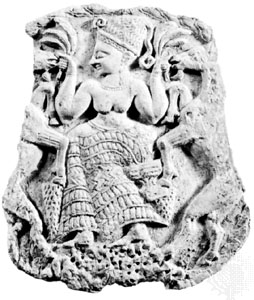“Doing the same thing over and over and expecting a different result is the definition of madness.” Words along those lines are often attributed to Einstein, but then the internet is awash with things he didn’t say. Him and the Dalai Lama.
Anyway, the Labour party had a disastrous time in the UK’s 2015 general election. Since the party had won three successive elections since 1997 under Tony Blair, some people in the party believe that the way to win elections is to be more Blair-like. That is, more right-wing.
That’s based on a fundamental misunderstanding of history. In 1997, John Major’s incumbent Conservative government was in disarray, widely considered to be corrupt and incompetent. Major himself was derided as weak and foolish. By the time of the election, many moderate Conservatives had lost faith in the party and were ripe for poaching.
I say “many”. But because of the UK’s peculiar first-past-the-post voting system, small swings in electoral support cause big changes in the representation in parliament. The Conservative share of the total vote fell from about 42% to 31% compared to the previous election, while Labour’s share grew from 34% to 43%.
If we accept the one-dimensional model of political allegiance, we might guess that Blair’s right-wing “New Labour” successfully attracted the votes of some disillusioned Conservatives, while retaining the majority of its traditional centre-left support.
By 2001, at the next general election, the Conservative party was in better shape — slightly — but the new leader William Hague was doing little to improve their electability. Blair’s New Labour won again, with a share of the vote only slightly down from 43% to 41%. But the real headline news of the election was the drop in turnout. In 1997, 71% of voters had participated. In 2001, it was only 59%.
What was happening? A general lack of faith in the political system? In politicians? Whatever it was, Tony Blair carried on doing what he was doing, even though his personal popularity was in decline. His decision to involve the UK in the Iraq war of 2003 was controversial and unpopular, particularly among long-standing Labour supporters. At the next general election, Labour’s share of the vote had declined again, from 41% to 35% and the turnout was only a little up, at 61%.
By the next election in 2010, the Conservative party had been under the leadership of David Cameron for five years. Cameron had worked to modernise his party and to some degree had managed to suppress the “swivel-eyed loon” faction. In contrast, Gordon Brown had become leader of the Labour party (and hence Prime Minister) but had little charisma and low popularity. His policies continued to follow the right-wing New Labour line.
 There had been a huge global economic crash under Brown (first as Chancellor and then as Prime Minister) which had been caused by financial institutions trading recklessly in risky debt. The bankers had believed that their clever financial products protected them from risk, even though that was mathematically impossible. The crash was inevitable, but in spite of the clear evidence of bankers’ incompetence, the Conservatives claimed that the Labour government were to blame. (And have continued to do so.)
There had been a huge global economic crash under Brown (first as Chancellor and then as Prime Minister) which had been caused by financial institutions trading recklessly in risky debt. The bankers had believed that their clever financial products protected them from risk, even though that was mathematically impossible. The crash was inevitable, but in spite of the clear evidence of bankers’ incompetence, the Conservatives claimed that the Labour government were to blame. (And have continued to do so.)
So Labour’s share of the vote declined again, from 35% to 29%, while the Conservatives became the largest party in parliament, having gained 36% of the vote. They didn’t have a majority, but formed a coalition government with the Liberal Democrats. (The latter had 23% of the vote, a modern record for them, but only 8% of parliamentary seats, again a quirk of the first-past-the-post system.)
The new government proceeded to inflict “austerity” on the nation. That is, reducing government expenditure and cutting taxes. In effect, a strategy of “trickle-up economics”, where the rich get richer and the poor get poorer. The argument for “austerity” is that it is required in order for the government to balance its books and not get into debt. In fact, it actually depresses the economy and reduces government income from taxation, making the debt problem worse. Few economists think that “austerity” is a smart idea. I suspect that even Conservatives don’t buy the logic of it, but they like the result: lower taxes for the rich.
You’d think then that by 2015 and the latest general election, the Labour party would be ideally positioned to inspire the electorate to reject austerity and vote for prosperity. After all, millions of people were financially worse-off after five years under the coalition government. But that wasn’t the approach the party took. Instead, the party leaders decided to campaign on the basis of “nice” austerity. Conservative austerity, but not being quite so nasty to the poor and disadvantaged.
It didn’t work. Admittedly, the Labour party’s share of the vote increased from 29% to 30%, but they lost 26 parliamentary seats. The Conservatives increased their share of the vote too, to 37%, and gained enough seats in parliament to have a small majority. The most sensational results, though, were the gains by the Scottish National Party, and the losses by the Liberal Democrats. In almost mirror fashion, the LibDems went from 56 seats to 8, while the SNP went from 6 to 56, but the causes were probably not exactly the same.
Traditional Liberal Democrat supporters probably deserted the party because of its part in the coalition government. The party leaders argued that their presence in government had “moderated” Conservative policies, again trying to make austerity “nicer”.
The situation in Scotland was more complex. Labour and Conservatives had campaigned against independence for Scotland in the 2014 referendum, which reinforced the impression that they were indistinguishable. I also suspect that Scots who had voted against independence on the basis of promises for more devolved powers were feeling betrayed when the new devolution proposals fell short of what they believed had been offered.
But the SNP also offered a clear, socialist, anti-austerity message. The result was their landslide, and 50% of the vote in Scotland. A party which could reproduce that result across the UK would end up with a huge majority in Parliament.
The Labour party has a choice now. Continue doing the same thing over and over; or adapt to the politics of 2015.
 When a Linux system starts up, it calculates the processor speed. (I don’t know why. I can’t imagine timing loops going on in the kernel.)
When a Linux system starts up, it calculates the processor speed. (I don’t know why. I can’t imagine timing loops going on in the kernel.) There had been a huge global economic crash under Brown (first as Chancellor and then as Prime Minister) which had been caused by financial institutions trading recklessly in risky debt. The bankers had believed that their clever financial products protected them from risk, even though that was mathematically impossible. The crash was inevitable, but in spite of the clear evidence of bankers’ incompetence, the Conservatives claimed that the Labour government were to blame. (And have continued to do so.)
There had been a huge global economic crash under Brown (first as Chancellor and then as Prime Minister) which had been caused by financial institutions trading recklessly in risky debt. The bankers had believed that their clever financial products protected them from risk, even though that was mathematically impossible. The crash was inevitable, but in spite of the clear evidence of bankers’ incompetence, the Conservatives claimed that the Labour government were to blame. (And have continued to do so.) The BBC is obliged by its charter to present “balanced” reporting of news, something that makes it unique in English-language broadcasting. Sometimes that shocks right-wing politicians into spluttering indignation. They’re much more accustomed to the unquestioning support of Britain’s press and the wealthy proprietors.
The BBC is obliged by its charter to present “balanced” reporting of news, something that makes it unique in English-language broadcasting. Sometimes that shocks right-wing politicians into spluttering indignation. They’re much more accustomed to the unquestioning support of Britain’s press and the wealthy proprietors.
 On this International Holocaust Memorial Day, I was musing to myself about what turns normal people into the perpetrators of genocide, not just in Nazi Germany, but in Bosnia, Rwanda, and many other places. It seems to me that one fundamental flaw in the human personality is obedience to authority.
On this International Holocaust Memorial Day, I was musing to myself about what turns normal people into the perpetrators of genocide, not just in Nazi Germany, but in Bosnia, Rwanda, and many other places. It seems to me that one fundamental flaw in the human personality is obedience to authority. Post Codes were introduced in the UK in the nineteen-sixties, although parts of Fermanagh weren’t absorbed into the system until the eighties or later.
Post Codes were introduced in the UK in the nineteen-sixties, although parts of Fermanagh weren’t absorbed into the system until the eighties or later. Today, 28th October, is calculated to be the exact anniversary of the battle of the Milvian Bridge in Rome, where rival Roman Emperors (and brothers-in-law) Constantine and Maxentius personally led their armies against each other in the year 312. Maxentius made some bad tactical decisions and his forces lost badly to those of Constantine.
Today, 28th October, is calculated to be the exact anniversary of the battle of the Milvian Bridge in Rome, where rival Roman Emperors (and brothers-in-law) Constantine and Maxentius personally led their armies against each other in the year 312. Maxentius made some bad tactical decisions and his forces lost badly to those of Constantine. Even according to the Bible, Asherah’s statue was worshipped in Jehovah’s temple in Jerusalem right up until the Babylonian conquest in 587 BC, although a couple of the kings in the preceding centuries, Josiah and Hezekiah, had conducted purges and tried to enforce Jehovah-only worship. It never stuck. The second book of Kings is full of fascinating detail of the religious practices that went on, including sacred horses of the Sun and temple prostitutes in Jehovah’s house.
Even according to the Bible, Asherah’s statue was worshipped in Jehovah’s temple in Jerusalem right up until the Babylonian conquest in 587 BC, although a couple of the kings in the preceding centuries, Josiah and Hezekiah, had conducted purges and tried to enforce Jehovah-only worship. It never stuck. The second book of Kings is full of fascinating detail of the religious practices that went on, including sacred horses of the Sun and temple prostitutes in Jehovah’s house. The Darwins were rich, and Charles never had to work for a living. He went to the same university as I did, except that I actually got a degree. His famous voyages were paid for by his father. But Charles was a meticulous observer and an intelligent and talented scientist. When he returned from his travels and wrote up a synthesis of his theories, that was pretty much the theory of evolution worked out. It was done by the early 1840s.
The Darwins were rich, and Charles never had to work for a living. He went to the same university as I did, except that I actually got a degree. His famous voyages were paid for by his father. But Charles was a meticulous observer and an intelligent and talented scientist. When he returned from his travels and wrote up a synthesis of his theories, that was pretty much the theory of evolution worked out. It was done by the early 1840s.